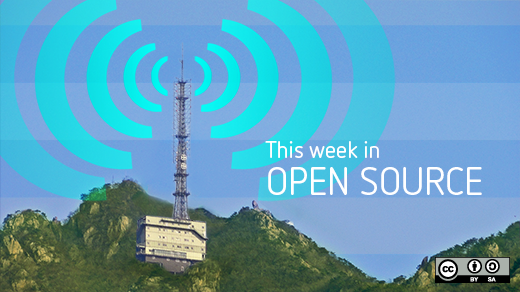Open source news for your reading pleasure.
May 31 - June 6, 2014
In this week's edition of our open source news roundup, we look at newly available open health data, an open source email encryption tool from Google, and more.
Introducing the world's largest community makerspace
What do you do with a hundred-year-old former shoe factory? Thanks to the creativity and hard work of some entrepreneurial makers in Columbus, Ohio, the answer is obvious: turn it into a giant community makerspace! For monthly fee, members get access to a wide array of tools, software, and other resources to turn their ideas into reality. Featuring 65,000 square feet of space for makers, the building features everything from a learning lab for coding to a metal shop, woodshop, kilns, laser cutter, and more.
Fedora leader passes the torch
After carrying the flame for four release cycles, Fedora Project Leader Robyn Bergeron recently announced her decision to move on, and she offered a few parting thoughts on her blog. Calling the job both "daunting" and "amazing," Bergeron offered her endorsement of Matthew Miller, who will be taking the lead starting with Fedora 21. Miller had previously headed up the cloud efforts in Fedora.
Google open sources email encryption tool
Is your email encrypted? Do you wish it were but don't know how or don't want to put in the effort? Google has recently released the source code for a Chrome extension called End-to-End, which helps provide email encryption to users. While Google's Gmail has used Transport Layer Security (TLS) to encrypt email transfers, TLS requires it being used on both ends of the email transaction in order for it to work, which can be a significant hinderance. It is hoped that the new efforts will expose encryption to new users.
Samsung's new Tizen smartphone: Is it truly open?
Samsung has revealed its first phone running the Tizen operating system. Like Android, Tizen is based on Linux and claims to be entirely open source; however, there is some uncertainty as to whether the "Flora" license under which it is released is OSI compatible. Samsung also made headlines this week with their announcement of the Samsung Digital Health Initiative, which provides open hardware and software platforms for managing personal health device information.
Expanding access to open health data
Also on the open health front this week, the United States Department of Health and Human Services launched a number of new open data initiatives. New data about hospital costs and billing are being released, allowing analysts to better examine how medical expenses vary around the country. Additionally, the Food and Drug Administration is giving new access to drug and medication error data, which has been collected over the past ten years, hoping that this new data access will encourage companies to innovate with the data to provide new value to the public.
Boosting funding for open source security
In the wake of recent security concerns, the Linux Foundation developed the Core Infrastructure Initiative, to ensure that critical open source infrastructure programs receive the funding they need in order to be audited and maintained as secure. After a review of such projects, it was announced that OpenSSL, OpenSSH, and NTP (the Network Time Protocol) will receive the first round of attention and funding.
Thanks to Opensource.com moderators Robin Muilwijk and Scott Nesbitt, as well as Opensource.com staffer Michael Harrison, for their help this week.







Comments are closed.